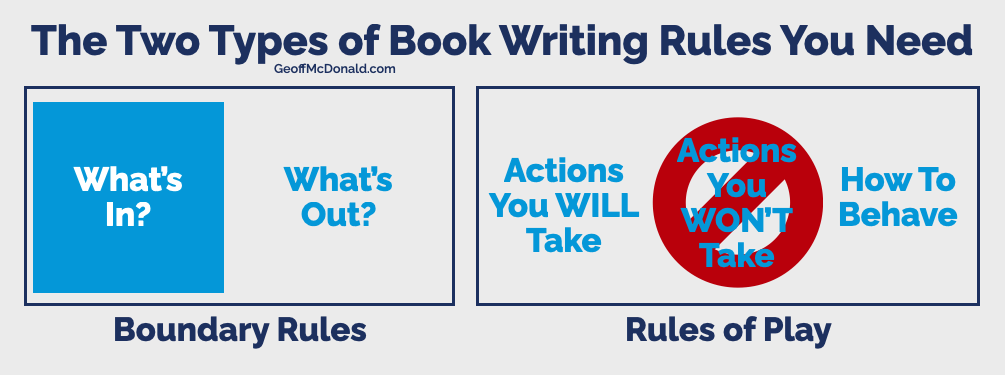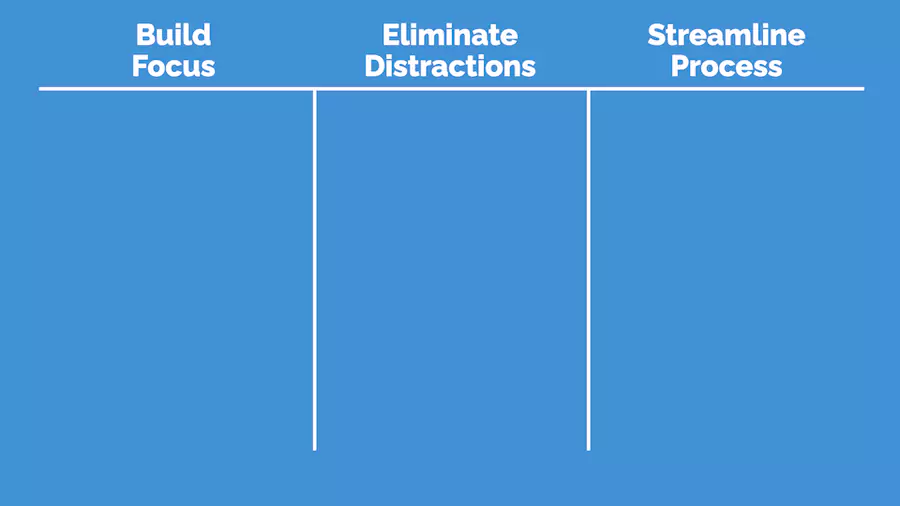You’ve decided to write a book. Great. Now, do you want to write it the hard way or the easy way?
Writing a book is not easy
Writing a book is not easy. I’ve written and finished ten of them and started more than 25 others that I haven’t finished. If it was easy, I would have finished all of them.
It will take weeks and months of your time to write your book.
Hold up books
- My shortest book, The Cuckoo, is a children’s story. It only took a couple of hours to write.
- My longest book, Done, took me six months to write.
- And my book, Beyond the Electronic Drawing Board, was written in a week but took over five years to research.
When I’m writing my books it captures my attention. I’m thinking about it all the time. When I go to bed, I may not fall asleep because I’m thinking about it. I wake up in the middle of the night with my head full of ideas – thinking about my book. And some mornings, I’m too tired to write – because I’m constantly thinking about my book
If you want easy, don’t write a book.
But if you want to write a book, make it easier by going about it the right way. Don’t make the hard task of writing your book more difficult than it needs to be.
The Hard Way to Write a Book
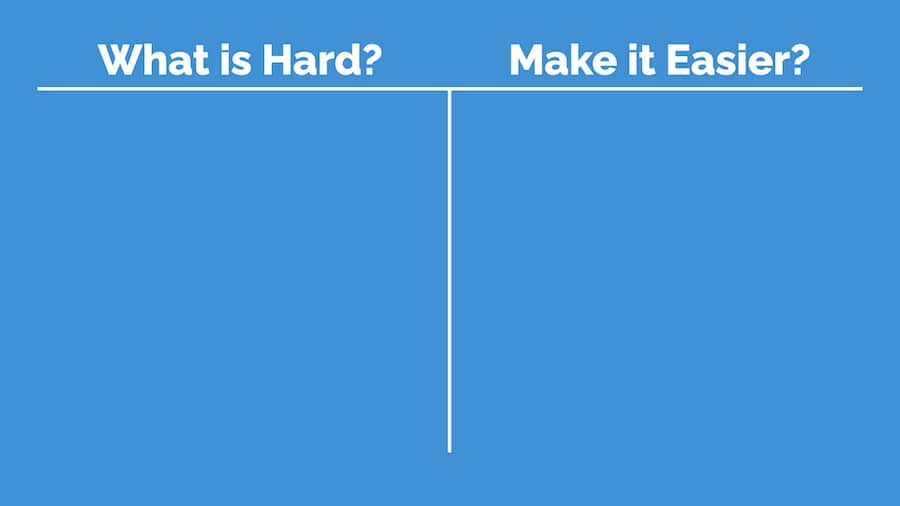
When we say ‘hard’ and ‘easy’ what are we talking about? What is the hard way to write a book? And what’s the easy way?
The hard way is:
- Struggling to get your ideas out of your head and into words in your book.
- Not being able to find clear time to write.
- Not being able to focus when you have found time to write.
- Writing multiple drafts because you aren’t clear on what you’re writing about.
- And it’s forcing yourself to write to a schedule that doesn’t suit you.
Take a moment to create a table like the image above and write down…
- What’s going to be hard about writing your book?
- And how can you make it easier?
The Three Elements of Your Book Writing Project
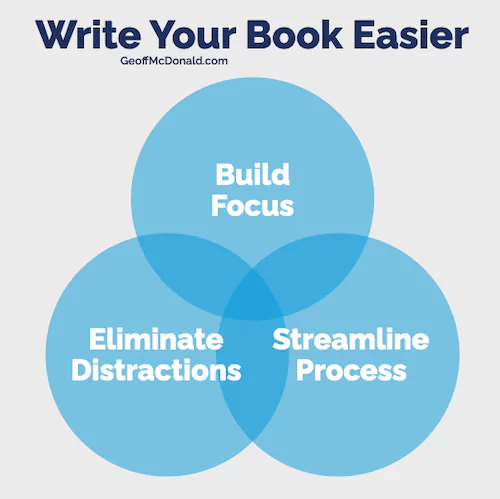
- Build Your Focus – you need to know what to focus on and how to focus on it.
- Eliminate Distractions – you need to eliminate and avoid things that stop you from writing well.
- Streamline your workflow – you need a consistent and reliable process for getting the ideas out of your head and onto the pages of your book.
How well you stay focused, avoid distraction, and streamline your workflow will determine how easy it is for you to write your book. If you fail in one or more of these three areas then you may not finish your book.
The Author’s Game Plan
I find the best way to address this is with a little pre-planning. In other words, to have a good Game Plan.
What’s the one thing that elite athletes do before they go out onto the field? They create a Game Plan for how they are going to win. To write and finish your book the easy way, you need a Game Plan too.
This post is part three of our four-part series on Game Plan for Authors.
- In part one, we talked about how to win. You need to be clear about what winning looks like before you start writing your book.
- In part two, we talked about measuring your progress and keeping your score. This is the best way to manage your motivation so you’re more likely to finish your book.
The Importance of Knowing What to Focus On
The third part of your Game Plan focuses on focus. And in terms of gameplay, this comes down to having rules. You need to design the rules of your book-writing game in such a way that it becomes an easy process for you to follow and complete.
The tricky part here is if you are writing a book for the first time, you may not know what works for you.
My advice here is not to overthink this. Write down a couple of ideas that appeal to you. Then try them out. If they work keep them. If they don’t work, then change them or get rid of them.
Rules for Writing from Famous Authors
If you’re not sure what book-writing rules to follow, the good news is there are plenty of examples from famous authors about how they write their books that you can learn from.
James Clear of Atomic Habits fame has written a great blog post with 12 examples. Here are three you might want to steal use:
- EB White said: I never listen to music when I write. I don’t either – I find it a distraction.
- Haruki Murakami gets up at 4 am and writes for five to six hours. I don’t get up at 4am (more like 7am) but I do write first thing in the morning.
- Ernest Hemingway writes every single day. I do too. I find it’s easier to get into your writing groove and keep the momentum going.
The Three Levels of Your Book Writing Project
What sort of rules do you need to write your book easier?
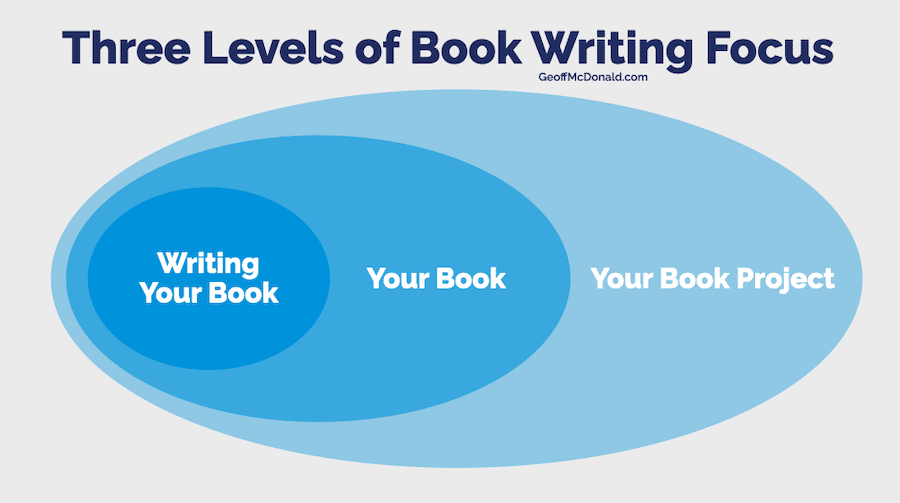
There are three levels to consider here and two types of rules to create. The three levels are:
- First, your book project. In the video, Answer this before you start writing your book, we talked about the importance of punching through your book. In other words, what result do you want your book to produce for you?
- Second, your book. What is your book about? When is your deadline? Is it going to be digital or print? Describe your book in as much detail as you can.
- And third is your book writing process. How are you going to get your book written? Are you waking up at 4am to write or are you going to dictate it while you drive to your day job?
Now for the two types of rules.
The First Types of Rules: Boundary Rules
In any game or sporting contest, there are always rules about what’s in the game and what’s out.
In tennis, there are lines painted on the court. If the ball lands inside the lines, then the game goes on. But if you hit the ball outside the lines, the game stops and you lose the point. These are boundary rules.
By being clear on the boundaries or limits of your book project you can ignore many potential distractions. This instantly sharpens your focus on what’s important.
The key to boundary rules is to think of either In or Out: What’s included in your book project? And what’s excluded?
For instance, in my book Done, I was writing about productivity. Rather than try to attempt the impossible and cover the entire field, I created a manifesto – The Seven Rules of Done. In this way, I was able to focus on my seven rules and ignore the rest.
Or you can think about beginnings and endings. What will your book be like when it’s finished? For example:
- When does your project start?
- When does it end?
- What type of book are you writing?
- Are you printing your book or is it a digital book?
The Second Type of Rules: The Rules of Play
The second types of rules you want to consider are the rules of play. Every game has rules. They shape how the game is played.
Did you know there are five different types of football? There is Soccer (the world game), American Football or gridiron, and two types of Rugby (Rugby League and Rugby Union), Gaelic Football and Australian Rules football.
Naturally, they all have different rules. That’s why they’re different types of football. If they had the same rules, they’d be the same game. For instance, in the world game of football (soccer), only the goalkeeper can touch the ball with their hands. But in all other games of football, every player can use their hands.
You might also like to pull out your favourite board game or even a digital game to review the rules that shape how the game is played. Usually, they’re written down and easy to find.
And you can even watch a reality TV show like Survivor or The Amazing Race to see if you can spot the rules of those games.
The Rules for Writing Your Book
Your rules for writing your book will include your writing process. How will you get the ideas out of your head and into your book in a clear way? Here your rules might include:
- Specific actions that you can and will take
- Actions that are banned from the game
- Plus, how you want to behave during the game. You might think of this as your Code of Conduct.
Henry Miller’s Rules of Play for Authors
A great example of Rules of Play for Authors is by painter and author, Henry Miller. He wrote his 11 Commandments for getting his work done. (My late great mate, Mike Allen, originally shared this with me several years ago. It was also on James Clear’s blog post.)
- Work on one thing at a time until finished.
- Start no more new books, add no more new material to “Black Spring.”
- Don’t be nervous. Work calmly, joyously, recklessly on whatever is in hand.
- Work according to Program and not according to mood. Stop at the appointed time!
- When you can’t create you can work.
- Cement a little every day, rather than add new fertilizers.
- Keep human! See people, go places, drink if you feel like it.
- Don’t be a draught-horse! Work with pleasure only.
- Discard the Program when you feel like it—but go back to it next day. Concentrate. Narrow down. Exclude.
- Forget the books you want to write. Think only of the book you are writing.
- Write first and always. Painting, music, friends, cinema, all these come afterwards.
The Three Lenses for Your Book Writing Rules
Ideally, you want to think of your rules through the lenses of how you can:
- Build your focus
- Eliminate distractions
- Streamline your writing process
You might want to sit down and create a table like the one below. Then jot some notes under each of these headings to kickstart the rules of your book-writing game.
Read This if You Think Rules Don’t Apply to You
And as a writer or a creative person, I bet you’re thinking… “But I’m creative. I don’t follow rules. I break them.” I’m creative too. But I have a different perspective on that.
My first career was as an architect. When people found this out, they would often ask, ‘What’s your dream house look like?’
Now, this could be an example of me breaking the rules, but I could never answer this question because it depends on so many things. It depends on who the house is for, it depends on where the house is, and it depends on the budget. It depends upon so many decisions you have to make.
The only way to design a house in that situation is to create some boundaries or rules about what to design and what not to design. When there are no constraints on your creativity, it makes it hard to make decisions because there are too many choices. For instance, when you have an unlimited budget, you can choose any type of door handle you want. But that gives you millions to choose from. In contrast, if you had a tiny budget, you’d probably eliminate 90% of the options.
This is the power of rules to streamline your book writing project so it’s easier to write and finish. It tells you what to focus on and what to ignore. That’s crucial for having the attention and focus you will need to write and finish your book in the easiest way you can.
The Big Book Writing Tip for Finishing Your Book Easier
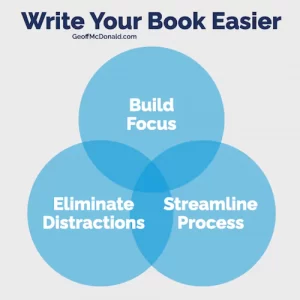
The key goal here with the rules is to find your best way to create your best book in the easiest possible way.
You want to build focus, eliminate distractions, and streamline your process.
The big lesson here is that you are the author of your own destiny. You have a choice here. They are your rules. You are the one creating them. You are the one living by them.
And remember, your rules are intended to support and streamline your book writing. If you find they’re not working, change them.
More on How to Write Your Book
If you’re serious about writing your book, here are three related resources that can help:
- The best reasons to write a book right now
- My best 10 tips for writing a book for the first time
- The surprising secret to finish writing your book
What rules are you creating for your book project, your book, and your writing process? Add a comment below. I’d love to hear what you have created.

